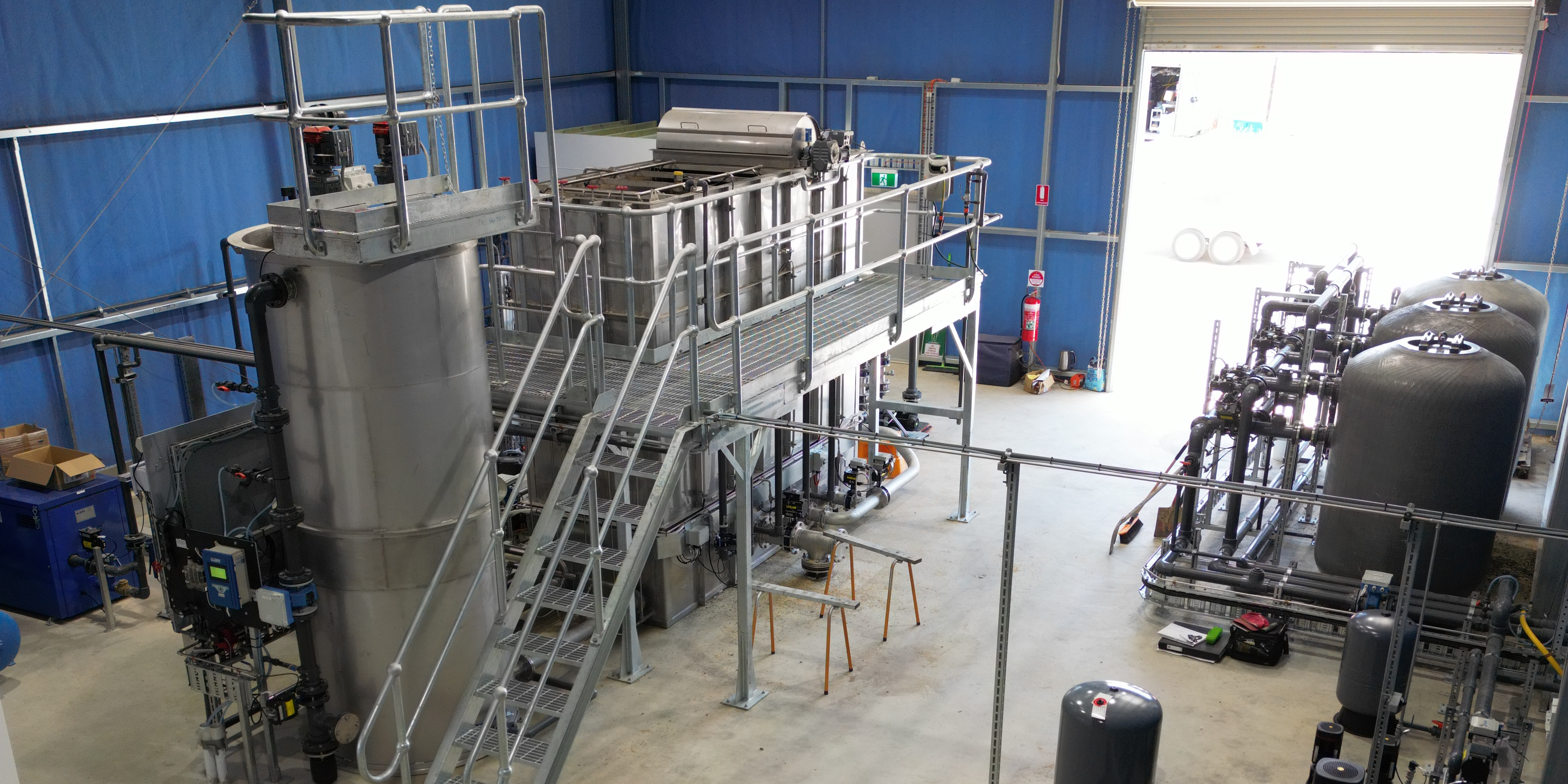Off-grid treatment plant sets benchmark for regional water

In May, during Ozwater’25, Grampians Wimmera Mallee Water (GWMWater) received the Infrastructure Project Innovation Award (Regional) at the 2025 Australian Water Awards. The organisation was recognised for its outstanding work in delivering the Elmhurst Water Treatment Plant, a fully off-grid facility servicing a small, rural Victorian community.
By designing the plant to operate entirely off-grid, the organisation avoided the need to clear native vegetation or install infrastructure on private properties. The result is a reliable, environmentally friendly and cost-effective service upgrade that meets community expectations, without placing an additional financial burden on customers.
Know a regional project that deserves the spotlight? Nominations for the state and territory awards are now open. Nominate a standout infrastructure project here.
GWMWater Managing Director Mark Williams said being recognised for the most innovative regional infrastructure project on the national stage was a huge honour.
“We like to think we punch above our weight with some of the things we're doing. This has just been one of those projects where we've differentiated ourselves a little bit from the rest of the sector,” he said.
“This project was award-worthy for a mix of reasons. The way we engaged the community, how we managed the interface between two different delivery partners, and, most importantly, our comfort with going off-grid. That’s still quite rare in Victoria.”
Williams said receiving the award was hugely significant for GWMWater, showcasing that not only can regional utilities do great work, but they can also lead in innovation.
“Awards like this are a key part of our broader strategy, particularly for recruitment. Attracting talent to the regions is a challenge. Showing how innovative and progressive we are helps make us an employer of choice," he said.
“When I returned to the Wimmera in 1996, people thought I was retiring early. But the work’s been deeply rewarding – particularly engaging with communities. We’ve had experienced directors join our board that were quite surprised and impressed with our sophistication.
“We’re one of the most advanced digital water utilities in regional Victoria.”
Community minded
Elmhurst has always been on the upgrades radar, Williams said, with the community consulted more than 20 years ago regarding water quality as part of push for state-wide water upgrades.
"At the time, the community was satisfied with the water quality from their pristine catchment. But climate change has affected both yield and quality, making water supply more challenging,” he said.
“In Elmhurst’s case, we considered piping in water from Ararat, but the distance, vegetation and a challenging landscape made a cross-country pipeline less feasible and gave rise to a standalone plant. The choice between centralised and decentralised often depends on the water source and the vulnerability of the catchment and in this case, we opted for a micro-plant.”
Williams said reliability was another key factor that needed to be considered in the solution.
“In remote areas, power supply can be patchy, especially during storms. With solar and battery, reliability is significantly improved,” he said.
“Elmhurst’s water supply is relatively resilient, and the treatment requirements were straightforward. The community was proud when we held a celebratory event earlier this year and we advised that we were in the mix for a national award. And I have to say, the water tasted pretty good.
“We might even nominate it for the best drinking water competition later this year.”
Going off-grid
While not the most popular solution, Williams said going off grid is becoming more financially viable and, in many instances, more resilient than trying to maintain a centralised service provision.
“We've had a Clean Energy Strategy for more than five years now. It’s part of the sector’s broader obligation to go carbon neutral, sourcing all energy from renewables,” he said.
“While carbon neutrality is an obligation, the economics of renewable energy in our region makes commercial sense.
“I’ve been challenging our engineers to identify opportunities not just to use renewables, but to go off-grid where it makes sense. And it’s only more recently that the economics have made it feasible, given the advances in battery and solar technology.
“Interestingly, going off-grid on this project wasn’t entirely by design. The location was quite isolated, so connecting to the grid would have required significant infrastructure.”
“When assessed on a life cycle basis it proved to be more cost-effective going off-grid. The battery-backed system, with a diesel generator for resilience, offered both performance and savings.”
Proud moment
With the Grampians region having a difficult start to the year, the award win definitely lifted morale, Williams said.
"We’ve had a tough summer with fires and competing priorities servicing such a vast geographic area, so it was great to lift spirits and remind everyone that we’re doing some really good work that deserves recognition,” he said.
“We are also looking beyond this project. We’ve secured funding for a neighbourhood battery in Donald to support more community-facing energy programs. We’re exploring how to use our assets to support broader community energy benefits.
"Winning the award at Ozwater affirms that, yes, we really are doing great things.”
Know an outstanding regional infrastructure project? We want to hear about it. Nominations for the state and territory awards are now open. Explore the award categories and nominate here.



